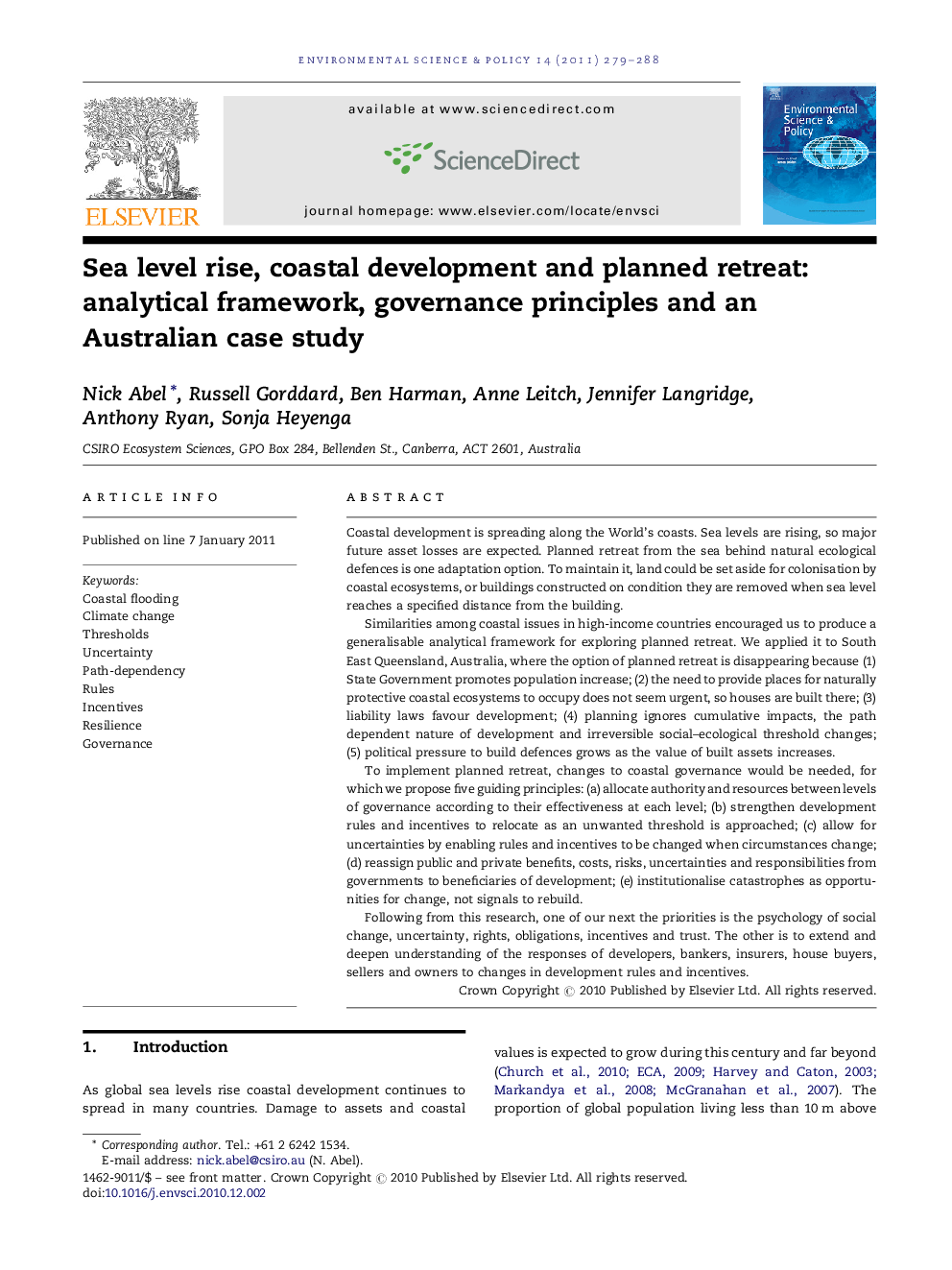| کد مقاله | کد نشریه | سال انتشار | مقاله انگلیسی | نسخه تمام متن |
|---|---|---|---|---|
| 1053876 | 946731 | 2011 | 10 صفحه PDF | دانلود رایگان |

Coastal development is spreading along the World's coasts. Sea levels are rising, so major future asset losses are expected. Planned retreat from the sea behind natural ecological defences is one adaptation option. To maintain it, land could be set aside for colonisation by coastal ecosystems, or buildings constructed on condition they are removed when sea level reaches a specified distance from the building.Similarities among coastal issues in high-income countries encouraged us to produce a generalisable analytical framework for exploring planned retreat. We applied it to South East Queensland, Australia, where the option of planned retreat is disappearing because (1) State Government promotes population increase; (2) the need to provide places for naturally protective coastal ecosystems to occupy does not seem urgent, so houses are built there; (3) liability laws favour development; (4) planning ignores cumulative impacts, the path dependent nature of development and irreversible social–ecological threshold changes; (5) political pressure to build defences grows as the value of built assets increases.To implement planned retreat, changes to coastal governance would be needed, for which we propose five guiding principles: (a) allocate authority and resources between levels of governance according to their effectiveness at each level; (b) strengthen development rules and incentives to relocate as an unwanted threshold is approached; (c) allow for uncertainties by enabling rules and incentives to be changed when circumstances change; (d) reassign public and private benefits, costs, risks, uncertainties and responsibilities from governments to beneficiaries of development; (e) institutionalise catastrophes as opportunities for change, not signals to rebuild.Following from this research, one of our next the priorities is the psychology of social change, uncertainty, rights, obligations, incentives and trust. The other is to extend and deepen understanding of the responses of developers, bankers, insurers, house buyers, sellers and owners to changes in development rules and incentives.
Journal: Environmental Science & Policy - Volume 14, Issue 3, May 2011, Pages 279–288